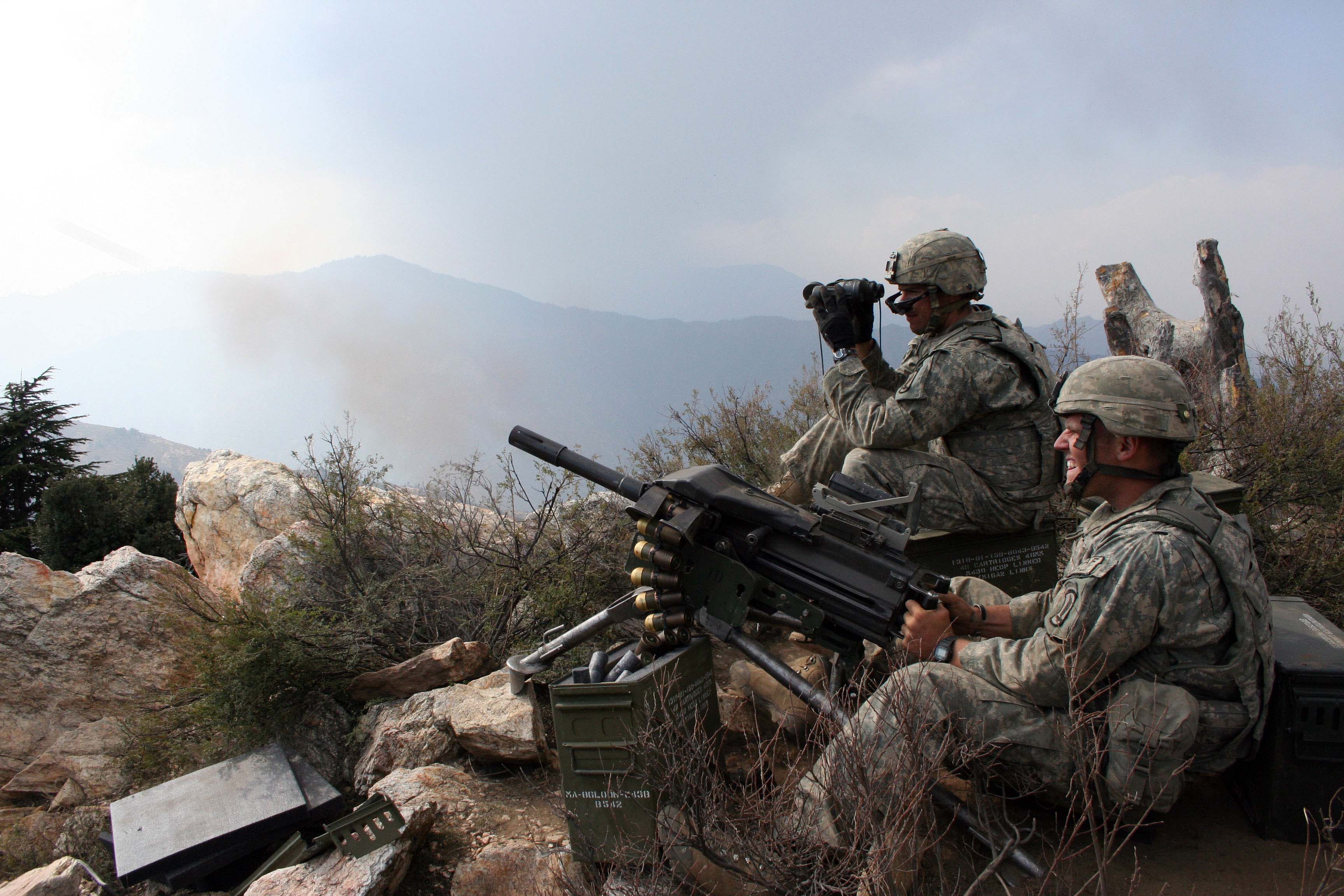The lawsuit alleges that, by paying the Taliban “protection” money, contractors caused the death of U.S. servicepeople in Afghanistan.
Gold Star families have filed a lawsuit against some of the biggest defense contractors in the United States, claiming the companies funneled protection money to the Taliban.
Altogether, more than 100 Gold Star families are participating in the suit. They allege that whichever contractors paid off the Taliban funded the terror outfit’s activities against the U.S. military, including fatal attacks on servicepeople.
According to NPR, it’s illegal under the federal Anti-Terrorism Act to provide material support to the Taliban. While the U.S. government repeatedly warned contractors not to make many protection payments, the practice purportedly persisted.
CNN notes that, in 2009, then-Secretary of State Hillary Clinton said that “protection money” and similar extortion rackets are “one of the major sources of funding for the Taliban.”
The lawsuit suggests that several contractors—including the likes of MTN Group, DAI Global, the Louis Berger Group Inc., and Black & Veatch Special Projects Corp.—actively cooperated with the Taliban’s demands. Along with channeling funds to the Taliban, MTN Group, a telecommunications company, allegedly switched off its cellular network whenever the terror outfit asked.
“Defendants supported the Taliban for a simple reason: Defendants were all large Western companies with lucrative businesses in post-9/11 Afghanistan, and they all paid the Taliban to refrain from attacking their business interests,” the suit states. “Those protection payments aided and abetted terrorism by directly funding an al-Qaeda-backed Taliban insurgency that killed and injured thousands of Americans.”

The complaint, filed in the U.S. District Court for the District of Columbia, provides a simple narrative: beginning in 2005, the Taliban began approaching international businesses active in Afghanistan. They offered a simple ultimatum, demanding that contractors either pay for protection or face the prospect of terror attacks and sabotage.
“Defendants paid the Taliban to leave them alone,” the suit says. “The payments saved Defendants money: it was cheaper to buy off the Taliban than it would have been to invest in the security necessary to mitigate the terrorists’ threats.”
Some of the companies listed in the suit earned more than $1 billion from their involvement in Afghanistan, funded by the U.S. Agency for International Development in Afghanistan. However, none of the groups CNN asked for comment were willing to address the complaint’s specific allegations.
Andrew Bacevich, professor emeritus of international relations and history at Boston University, told NPR that the changing calculus of military strategy over-emphasizes the role of contractors—thereby contributing to situations in which such profit-generating enterprises might be inclined to aid enemy forces.
“The central issue here is the Pentagon’s reliance on contractors in war zones,” Bacevich said. “In the old days, the U.S. military, when at war, was largely self-sufficient. Today, the U.S. military is heavily dependent on profit-making enterprises, which inevitably privilege the bottom-line over other considerations.
“I don’t know whether the evidence will sustain the plaintiffs in this case,” he said, “but I wouldn’t be surprised.”
Sources
Gold Star Families Sue Defense Contractors, Alleging They Funded The Taliban
Gold Star family lawsuit alleges contractors in Afghanistan funneled money to the Taliban


Join the conversation!